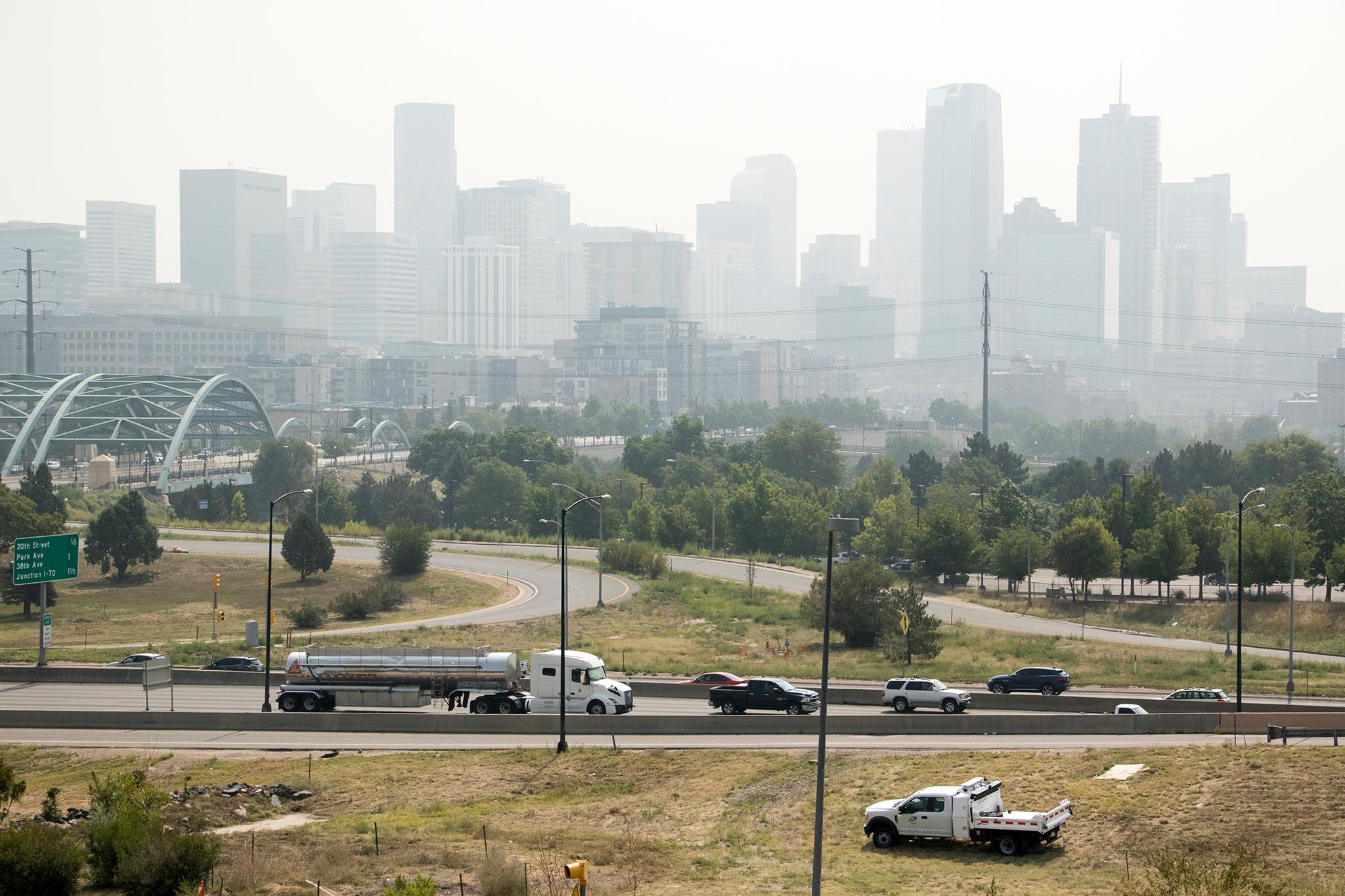
Over the next few months, the Colorado Air Quality Control Commission is scheduled to consider plans to meet ambitious goals to reduce Colorado’s contribution to climate change.
Only now the citizen panel will be missing some of its most vocal advocates for reducing emissions and improving air quality.
Last Friday evening, Gov. Jared Polis announced he had decided not to reappoint Auden Schendler, vice president for sustainability at Aspen Skiing Company, or Dr. Anthony Gerber, a pulmonologist at National Jewish Health. Peter Butler, a water expert from La Plata County who has been absent from recent meetings, was also not reappointed.
While appointments require the approval of the state Senate, Polis can appoint whomever he likes when the legislature is not in session. The decisions are immediate. Recess appointments are common in Colorado, but the recent changes are notable for their timing.
After months of slow work, state air regulators are set to begin proposing rules to reshape Colorado’s economy in light of the climate crisis. The AQCC decides which ideas become law.
Schendler, who describes himself as a “climate hawk,” said he was surprised and disappointed by the news. Without his vote on the commission, he worries the panel will not be able to approve regulations necessary to meet Colorado’s ambitious greenhouse gas emission targets. Gov. Polis signed the goals into law last year.
“It’s the zero hour on climate in Colorado,” he said. “This is a time for radical action and the AQCC has a statutory obligation to act.”
The new appointments are the latest turn of events in a simmering battle over Colorado’s climate plans. Already, environmental advocacy groups have sued the Polis administration for failing to meet a July 1 deadline to propose greenhouse-gas reduction rules.
Jeremy Nichols, whose group WildEarth Guardians is leading the lawsuit against the Polis administration, said he'll be looking to see whether the new members are willing to take action to address climate change. The lawsuit alleges the state hasn't done enough to propose a wide plan to meet emissions goals.
“There's a lot of talk going on but not a lot of action,” he said. “I think people are going to be looking to the AQCC to give some clearer signs that action is imminent.”
Polis, who ran on a promise of 100 percent renewable energy by 2040, defended the most recent changes as an effort to promote climate action. In a statement sent through a spokesperson, he noted signs of an escalating climate crisis, such as Colorado’s ongoing drought and a record 130-degree temperature record in Death Valley.
“With the recent appointment of a diverse group of Coloradans that bring valuable expertise to the Commission, I’m confident that Colorado will continue to lead on climate and clean air," he said.
Gerber said he wasn’t convinced the decision was about climate change. While he has supported aggressive action to improve air quality, he had served on the commission for six years. He said that’s a long time to serve on a citizen board.
“Having some turnover is important,” he said. “I never received a guarantee that I would receive another term.”
Gerber added the commission has largely supported recent efforts to reduce greenhouse gas emissions. In the last few months, the panel has approved one rule to phase out hydrofluorocarbons, a potent class of climate-warming chemicals. It also required car dealers to carry a greater variety of electric vehicles. Both won unanimous or nearly unanimous support before board members.
“There hasn’t been a lot of nail-biter, five-to-four decisions,” said Gerber.
But the most important rules have yet to reach the commission. The Colorado Energy Office is at work on a emissions “roadmap,” which is meant to guide policymakers toward policies to meet the state climate goals.
Schendler suspects he was excluded from those decisions because of his views on climate change. For evidence, he pointed to who the governor appointed or reappointed to the commission. Three of those four commission members have a background related to the oil and gas industry.
One of those new appointments is Randy Ahrens, who worked in the oil and gas industry before serving as the mayor of Broomfield from 2013 to 2019. While in office, Extraction Oil and Gas moved to drill dozens of new wells in the city. Ahrens tried to walk a middle line between the company and upset residents. Eventually, he joined calls for greater local control over the industry.
Polis also appointed Gary Arnold, the business manager for Denver Pipefitters Local #208. Arnold has defended the controversial Jordan Cove project in Oregon in his role with the union. Local natural gas producers hope the export terminal could help Colorado companies reach Asian markets
Polis reappointed Charles Grobe, who served as a Republican county commissioner in Moffat County after working for Tri-State Generation and Transmission. While the utility recently committed to rapidly expand its supply of renewable power, it has historically relied on coal.
The final new member is Michael Ogletree, who works as the Air Quality Program manager from the City of Denver.
CPR News attempted to contact the new or reappointed members. All of them either declined to comment or did not reply prior to publication.








